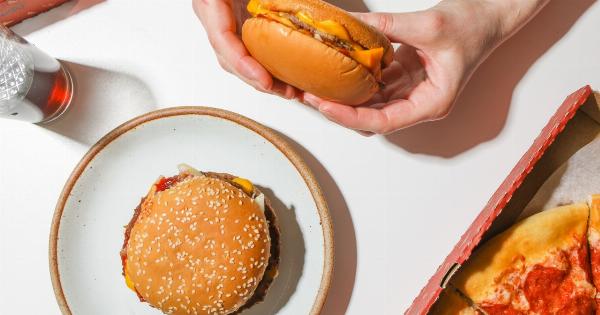Junk food has become increasingly popular in our modern, fast-paced society. With its convenience, affordability, and addictive taste, it is no wonder why so many people indulge in these tasty treats.
However, the impact of junk food on our bodies goes far beyond just expanding waistlines and increasing the risk of chronic diseases. Recent research has shown that junk food can have a detrimental effect on the brain’s reward system, which plays a crucial role in regulating our eating behaviors.
The brain’s reward system
The brain’s reward system is a complex network of brain structures and chemicals that motivates us to seek out pleasurable experiences.
It is primarily controlled by a chemical messenger called dopamine, which is released in response to rewarding stimuli. When we engage in activities like eating, drinking, or engaging in social interactions, dopamine is released, creating a sense of pleasure and reinforcing those behaviors.
This reward circuitry helped our ancestors survive by motivating them to seek out and consume foods that were necessary for their survival, such as fruits, proteins, and fats.
The allure of junk food
Junk food, on the other hand, has a unique set of qualities that make it highly appealing to our brains. Most junk foods are high in sugar, fat, and salt, which are known to trigger a pleasurable response in our reward system.
Additionally, the combination of these ingredients can create a blissful taste sensation that is hard to resist. This combination of intense flavors and high reward value makes junk food an enticing choice for many individuals, even if they are aware of its negative impact on their health.
The impact on dopamine release
Studies have shown that the consumption of junk food can lead to changes in the brain’s reward system, specifically in its response to dopamine.
Research conducted on both animals and humans has demonstrated that chronic consumption of high-calorie, palatable foods can lead to a blunting of the dopamine response. Over time, this can result in a reduced ability to experience pleasure from natural, healthy foods and an increased desire for more junk food to achieve the same level of satisfaction.
The role of food addiction
Food addiction is a controversial topic in the scientific community, but there is growing evidence to suggest that an addiction-like response can occur with certain types of foods, particularly those high in sugar and fat.
Junk food, with its highly rewarding properties, can trigger similar brain responses and behaviors observed in drug addiction. Animal studies have shown that rats exposed to a diet high in sugar and fat exhibit behaviors consistent with addiction, including binge-eating, withdrawal-like symptoms, and craving.
The cycle of reward and cravings
The brain’s reward system operates in a cycle. When we consume junk food, dopamine is released, creating a pleasurable sensation. Over time, however, the brain adapts to these high levels of dopamine, leading to a reduced response.
As a result, we may seek out more junk food to compensate for the diminished pleasure we experience from healthier options. This can create a vicious cycle of rewarding and craving, where the desire for junk food becomes increasingly intense, making it harder to resist temptation.
The impact on overall health
Beyond the addictive nature of junk food, the excessive consumption of these foods can have a significant impact on our overall health.
A diet high in processed and sugary foods has been linked to numerous health problems, including obesity, type 2 diabetes, heart disease, and cognitive decline. These conditions have their roots in the disruption of the brain’s reward system and its influence on our eating behaviors.
Breaking the cycle
Breaking free from the grip of junk food addiction can be challenging, but it is not impossible. Recognizing the impact of junk food on the brain’s reward system is the first step towards making positive changes.
Developing healthier eating habits, emphasizing whole foods, and finding healthier ways to reward ourselves can help rewire the brain’s reward system and reduce cravings for junk food. It may take time and effort, but the long-term benefits for both our physical and mental health are well worth it.
Conclusion
Junk food’s impact on the brain’s reward system is a significant concern in today’s society. The combination of intense flavors and high reward value can lead to addictive-like behaviors and a cycle of rewarding and craving.
Understanding the impact of junk food on the brain can help individuals make informed choices about their diets and work towards breaking free from the grip of junk food addiction. By prioritizing whole, nutritious foods and nourishing our bodies and minds, we can protect our overall health and well-being.




























